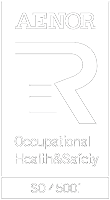In June of 2009 Engineer Albano Brgagni was re-elected as mayor of the small Tuscan town of Pieve Santo Stefano. Mr Bragagni is the president of Tratos Cavi S.P.a a local factory producing optical fibre and electrical cables, which was founded on the site in 1966 by Egidio Capaccini and accounts for much of the local employment.
We spoke to Mr Bragagni concerning his re-election and the effect of the current economic condition both on his company and the town in general.
TT: In Pieve life appears to be continuing as normal despite the current economic crisis, what do you feel is the secret to this?
AB: Pieve is fortunate enough to have a large industrial production facility in the town. There haven’t been any scandalous suggestions of reducing staff or relocating internationally, or even to other parts of the country. Pro-capita, Pieve has remained one of the most industrial towns in the province.
This employment stability combined with the continuing development of the “Camaiti Institute” gives Pieve an economic advantage, even over some regions in the north of Italy. That said, the current situation is not without some risk, as the world is constantly evolving.
TT: What do you think is necessary to maintain the current situation?
AB: Companies must strive to be as efficient as possible by committing to a policy of production innovation. Also, while being mindful of costs, it is important to look towards expanding markets. In general, the production facilities of Pieve, though small, sell to a worldwide market.
TT: In your opinion, are there any issues regarding domestic security?
AB: Not really, no. However I feel it is important to always pay attention to the flow of immigration because, if unchecked it can create a lot of problems, forcing the government to intervene and draining resources away from supporting the elderly, and other important public services. In reality, this flow gives, from the point of view of security, a big public order problem. To avoid this, a public administration must remain vigilant with an eye towards preventing problems before they happen.
TT: Many local businesses complain that there’s no more commercial initiative, in particular that it’s difficult to start new businesses in the town centre, what are your thoughts?
AB: The underlying problem is that the current bureaucratic system, along with all the European laws, makes it more difficult for those starting, or wanting to start a business to survive than those that already exist. For example, the laws regarding hygiene, which are themselves derived in part from EU legislation, mean that a small independent sheep farmer wouldn’t be able to sell his cheese because in order to do so he would need a full scale laboratory, which just isn’t practical. Indeed many farmers have gone out of business due to the removal of government subsidies for their activities. Even in business we are seeing the effects of the squeeze. The Vecchio Mulino (Old Mill) complex on the E45 has now become an “Autogrill”, and is carrying on fine, but with a multinational rather than a local company.
TT: What do you think are the reasons for this?
AB: The economical system is changing; it is still possible to start new ventures, but business as we knew it a few years ago doesn’t exist any more. For proof of this, just look at the shops in the town centre, the one doing the most business is the supermarket. This is because consumer habits are changing; people are following their purses, not their noses.










